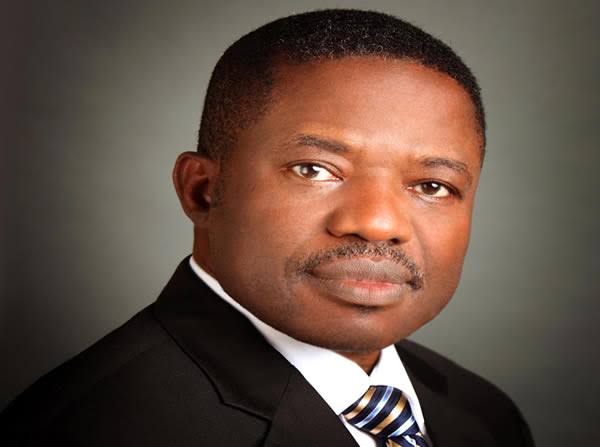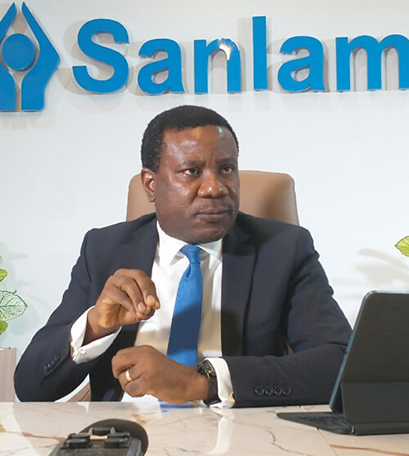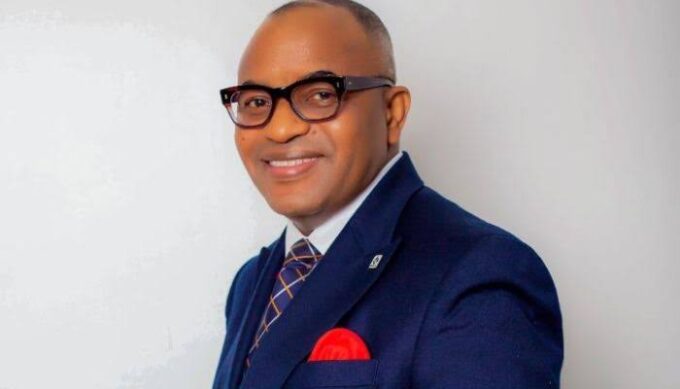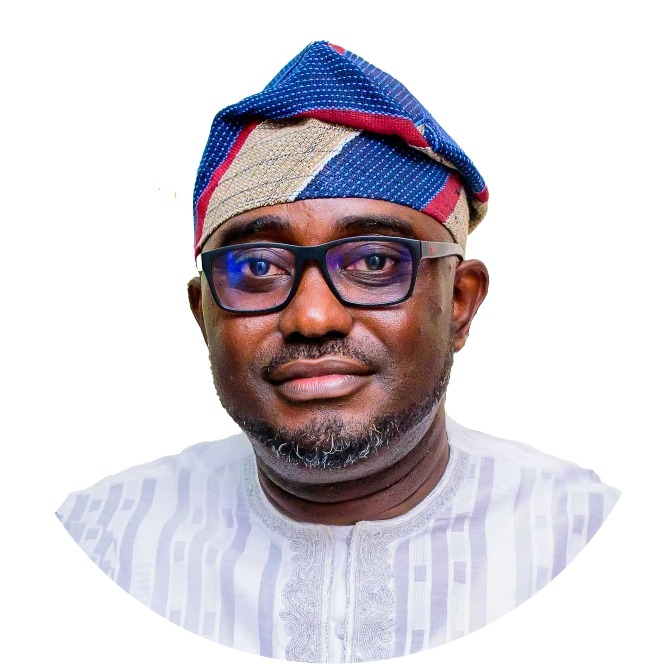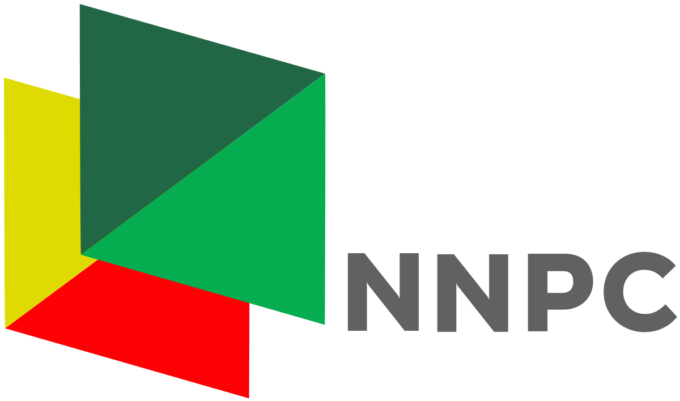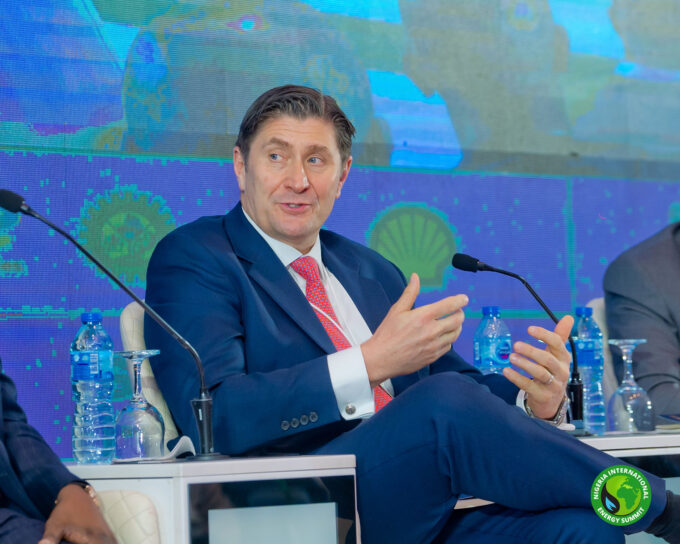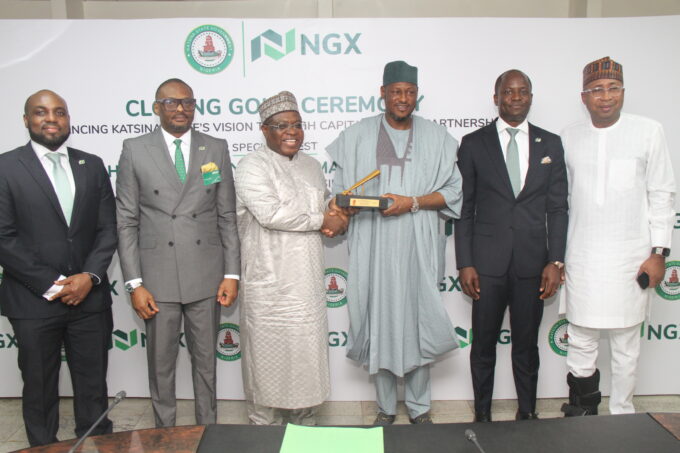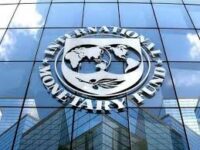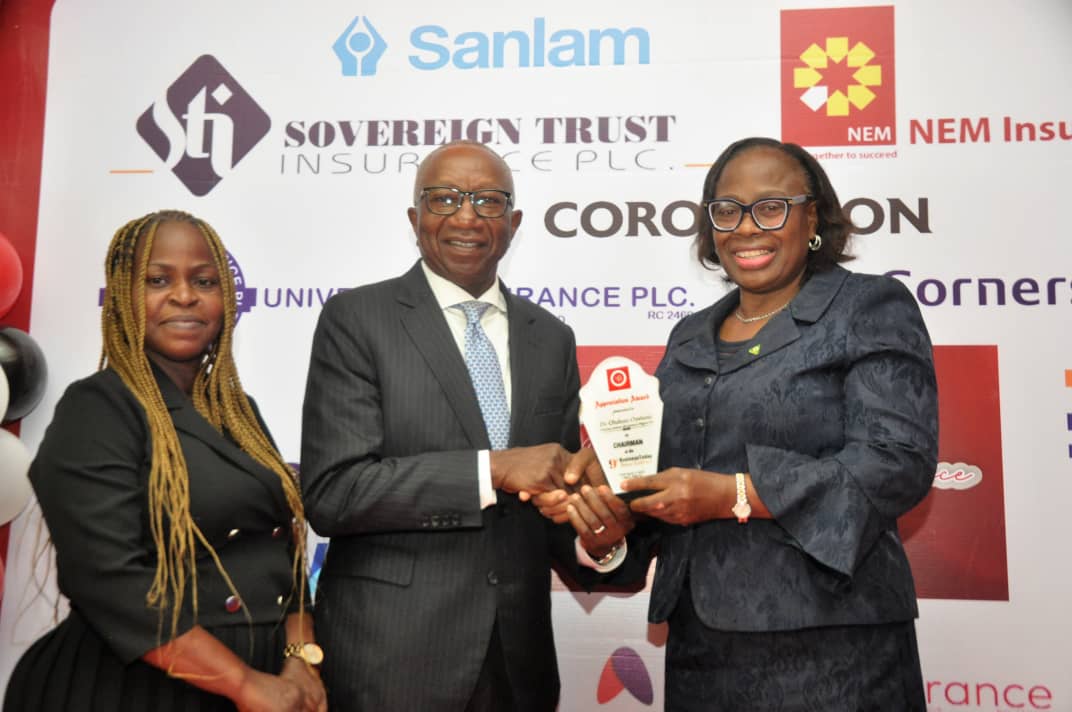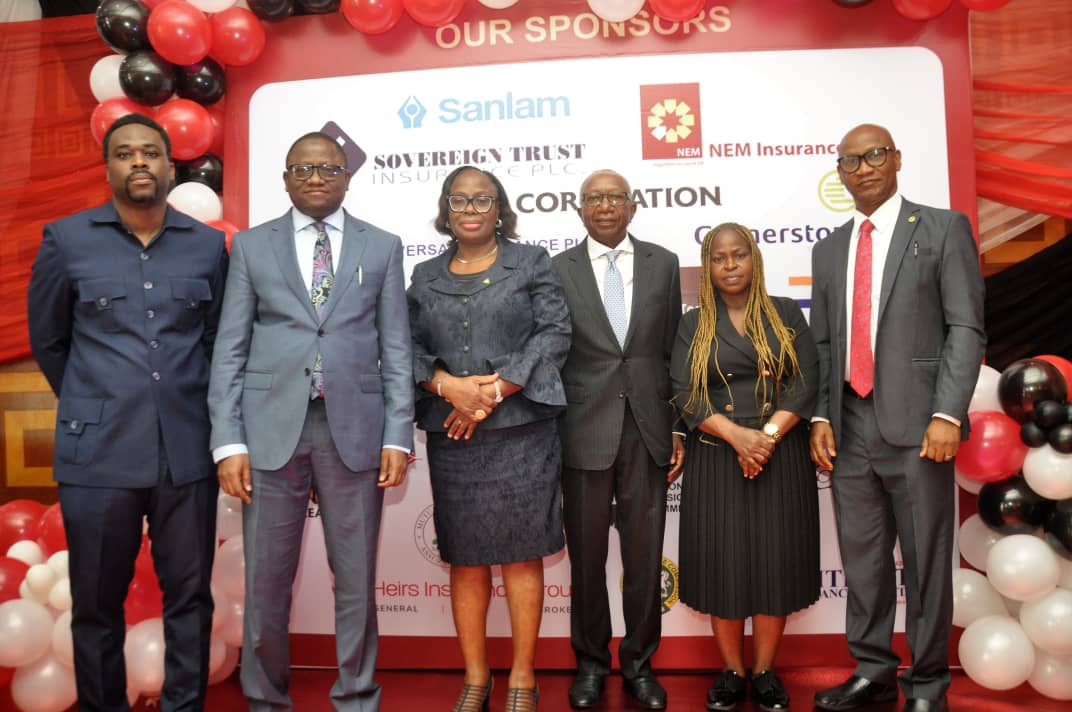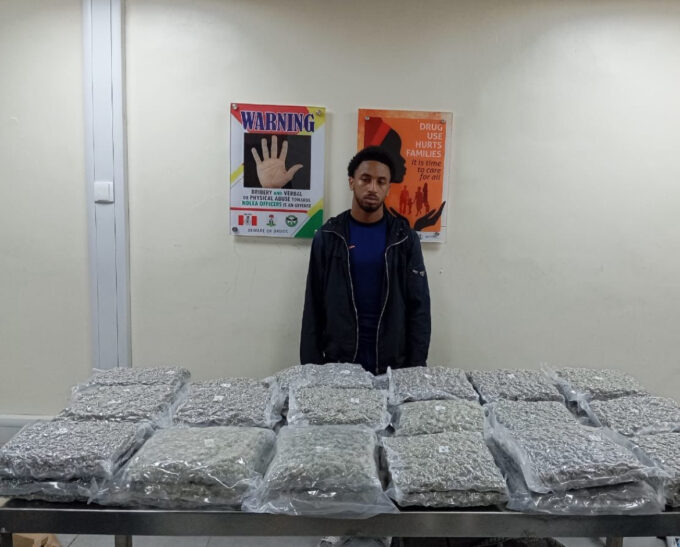- Home
- Business
- News
- Tourism / Travels
- Entertainment
- Regulators
- More
- Businesstoday Conference/Awards
- Business Today Magazine
Latest News
Please Subscribe
subribe to get the latest news delivered to you free
Navy Captain Omoniyi Caleb Olubolade (rtd), Is dead
May 12, 2025Court Jails Nine for Internet Fraud In Uyo
May 12, 2025Sovereign Trust I surance Reaffirms Commitment To Improved Human Capital Development
Sovereign Trust Insurance Plc has reiterated its uncompromising stance on continuous manpower development as the basis for sustainable operational efficiency and business profitability....
ByBusinessTodayNGMay 12, 2025Navy Captain Omoniyi Caleb Olubolade (rtd), Is dead
He celebrated his 70th birthday on November 30, 2024. Olubolade, the Ipoti-Ekiti-born retired officer, died on Sunday May 11 in Apapa, Lagos. ...
ByBusinessTodayNGMay 12, 2025Naira Abuse: Tompolo Will Have Questions To Answer”- EFCC
The Economic and Financial Crimes Commission, EFCC, has said Chief Government Ekpemupolo, popularly known as Tompolo, has questions to answer regarding the viral...
ByBusinessTodayNGMay 12, 2025Court Jails Two Six Months For Naira Abuse In Lagos
The Lagos Zonal Directorate 1 of the Economic and Financial Crimes Commission, EFCC, on Thursday, May 8, 2025, secured the conviction and sentence...
ByBusinessTodayNGMay 12, 2025NAICOM Unveils Revised Regulation On Insurance For Leased Aircrafts
The National Insurance Commission (NAICOM) has officially launched the Revised Regulation on Insurance for Leased and Financed Aircrafts. This development, according to the...
May 12, 2025Saraki To Chair PDP Reconciliation Committee Ahead Of NEC Meeting
The Peoples Democratic Party (PDP) has set up a committee headed by a former Senate president, Bukola Saraki, to reconcile aggrieved members ahead...
May 12, 2025NGX Chairman, Umaru kwairanga To Chair SUPERNEWS Confab June 19
The Chairman, the Nigerian Exchange (NGX) Group is the Chairman of the SUPERNEWS Nigeria Annual Conference scheduled to hold on June 19th 2025 ...
May 12, 202522-year-old British Ex-convict Arrested With Large Drug Shipment At MMIA
22-year-old British national, Campell Kaizra Kofi Johannes Slifer coming from Thailand through Doha on Qatar Airways flight have been arrested by operatives of...
May 11, 2025Sovereign Trust I surance Reaffirms Commitment To Improved Human Capital Development
Sanlam Celebrates Sales Champions At Annual Awards
Workers’ Day Celebration: Sovereign Trust Insurance Praises Nigerian Workers
IMT Applauds NIA For Strategic Fintech Collaboration To Improve Claims Payment
Unreleased Budgetary Allocations For MDAs Hinders Insurance For Federal Workers And Assets

NNPC, Dangote Reaffirm Commitment to Healthy Competition Towards National Prosperity
As part of ongoing efforts to promote mutually beneficial partnerships and foster healthy competition, the Nigerian National Petroleum Company Limited (NNPC Ltd.) and...
ByBusinessTodayNGMay 9, 2025Seplat Energy Committed To Leading Nigeria’s Indigenous Gas Revolution
Seplat Energy PLC, leading Nigerian independent energy Company listed on both the Nigerian Exchange and the London Stock Exchange, says it is committed to...
ByBusinessTodayNGMay 8, 2025NNPCL Dismisses Port Harcourt, Warri, Kaduna MDs, Others
The new management of the Nigerian National Petroleum Company Limited, NNPCL, has sacked closes allies of Mele Kyari, former Group CEO of the...
ByBusinessTodayNGMay 1, 2025ECOWAS And Ecobank Champion Alternative Energy Solutions
* Train Over 100 Entrepreneurs in Off-Grid Solar Sector in Abuja and Lagos The Economic Community of West African States (ECOWAS), in collaboration...
ByBusinessTodayNGApril 30, 2025Seplat Energy’s Revenue Rises To N1.228 Trillion In 2025 Q1, Declares US 4.6 Cents Dividend Per Share
Seplat Energy PLC, leading Nigerian independent energy Company listed on both the Nigerian Exchange and the London Stock Exchange, has announced its audited...
ByBusinessTodayNGApril 29, 2025Lagos Targets 6 Gigawatts In Three To Boost Power Supply
Lagos State has begun a journey to achieve energy independence with the target of 6 gigawatts in power generation over the next three...
ByBusinessTodayNGApril 16, 2025
CSCS Unveils Innovative USSD Code Service Tagged *7270#
Central Securities Clearing System PLC (CSCS), has announced the launch of *7270#, its Unstructured Supplementary Service Data (USSD) code service, set to go...
ByBusinessTodayNGMay 6, 2025FCMB Group Lists 19.8bn Shares On NGX After Oversubscribed Public Offer
FCMB Group Plc has listed 19.8 billion shares on the Nigerian Exchange Group (NGX) after a public offer that was 33% oversubscribed, signalling...
ByBusinessTodayNGFebruary 4, 2025H2: Oando Announces 45% Growth In Revenue To N4.1Trillion
Oando PLC, Africa’s leading integrated energy company, has announced a strong financial performance for the Full Year (FY) 2024 with a 45% growth...
ByBusinessTodayNGFebruary 1, 2025NGX Group Hosts Katsina State Governor, Strengthens Collaboration On Capital Market Opportunities
Nigerian Exchange Group (NGX Group) hosted the Executive Governor of Katsina State, Dr. Dikko Umar Radda, CON, at the Exchange, marking a significant...
ByBusinessTodayNGJanuary 30, 2025EFCC, NGX RegCo To Strengthen Partnership On Market Integrity
NGX Regulation Limited (NGX RegCo), the independent regulation subsidiary of Nigerian Exchange Group, and the Economic and Financial Crimes Commission (EFCC) have called...
ByBusinessTodayNGJanuary 29, 2025SEC Cautions Nigerians Against Risevest, Stecs Cooperative Societies, Says They Are Not Registered
BY NKECHI NAECHE- ESEZOBOR–The Securities and Exchange Commission (SEC) has warned the public, against engaging in any investment-related transactions with Risevest (Victoria Island)...
ByBusinessTodayNGJanuary 27, 2025
CBN Warns Public Of Fake Contracts Scams, Grants, Loans
By NKECHI NAECHE- ESEZOBOR–The Central Bank of Nigeria (CBN), on Monday warned the general public to dessert from engaging with individuals and groups...
ByBusinessTodayNGMay 12, 2025IFC, TLG Capital Announce $75m First Close Of African Private Credit Fund to Support SMEs
To support small and medium sized enterprises in Africa—and to protect jobs at those businesses—IFC and TLG Capital today announced the first close...
ByBusinessTodayNGApril 30, 2025Afreximbank Launches $3 Billion Revolving Intra-African Oil Import Financing Programme
To address Africa’s persistent reliance on imported refined petroleum products, which accounted for an amount of US$30billion annually in petroleum import costs due...
ByBusinessTodayNGApril 28, 2025
Navy Captain Omoniyi Caleb Olubolade (rtd), Is dead
He celebrated his 70th birthday on November 30, 2024. Olubolade, the Ipoti-Ekiti-born retired officer, died on Sunday May 11 in Apapa, Lagos. ...
ByBusinessTodayNGMay 12, 2025Naira Abuse: Tompolo Will Have Questions To Answer”- EFCC
The Economic and Financial Crimes Commission, EFCC, has said Chief Government Ekpemupolo, popularly known as Tompolo, has questions to answer regarding the viral...
ByBusinessTodayNGMay 12, 2025Court Jails Two Six Months For Naira Abuse In Lagos
The Lagos Zonal Directorate 1 of the Economic and Financial Crimes Commission, EFCC, on Thursday, May 8, 2025, secured the conviction and sentence...
ByBusinessTodayNGMay 12, 2025NAICOM Unveils Revised Regulation On Insurance For Leased Aircrafts
The National Insurance Commission (NAICOM) has officially launched the Revised Regulation on Insurance for Leased and Financed Aircrafts. This development, according to the...
ByBusinessTodayNGMay 12, 2025Saraki To Chair PDP Reconciliation Committee Ahead Of NEC Meeting
The Peoples Democratic Party (PDP) has set up a committee headed by a former Senate president, Bukola Saraki, to reconcile aggrieved members ahead...
ByBusinessTodayNGMay 12, 2025NGX Chairman, Umaru kwairanga To Chair SUPERNEWS Confab June 19
The Chairman, the Nigerian Exchange (NGX) Group is the Chairman of the SUPERNEWS Nigeria Annual Conference scheduled to hold on June 19th 2025 ...
ByBusinessTodayNGMay 12, 202522-year-old British Ex-convict Arrested With Large Drug Shipment At MMIA
22-year-old British national, Campell Kaizra Kofi Johannes Slifer coming from Thailand through Doha on Qatar Airways flight have been arrested by operatives of...
ByBusinessTodayNGMay 11, 2025NDLEA Arrest Iran-bound Woman With Cocaine In Private Part, StomachIn Port Harcourt
Ihensekhien Miracle Obehi who disguised with hijab to export large consignments of cocaine concealed in her private part, stomach and false bottom of...
ByBusinessTodayNGMay 11, 2025






